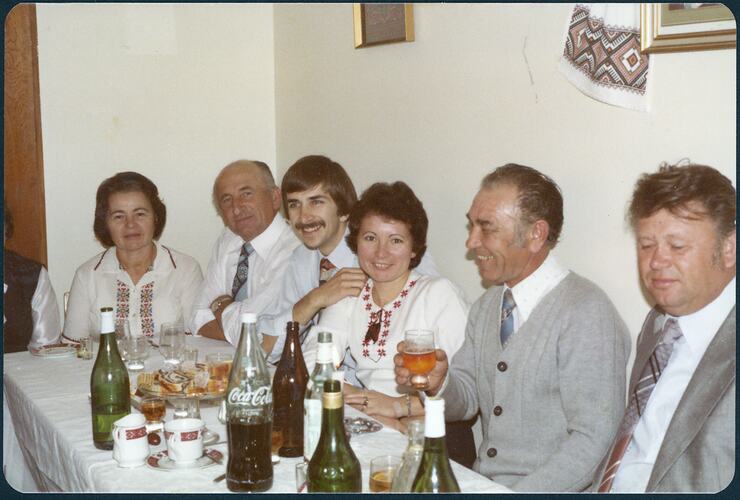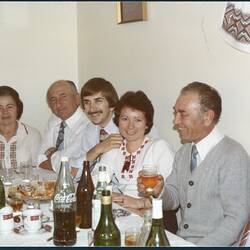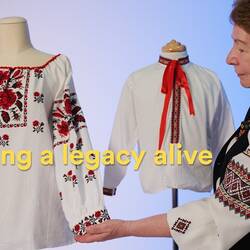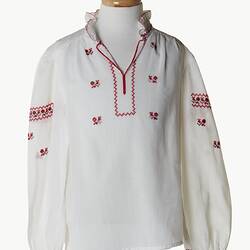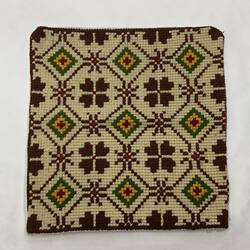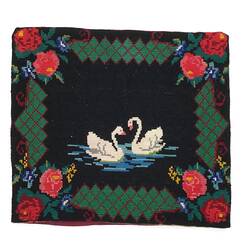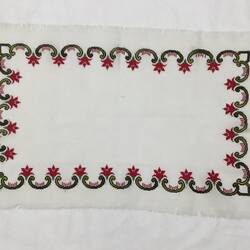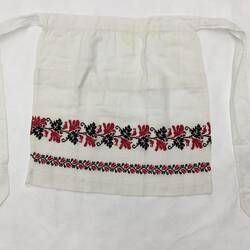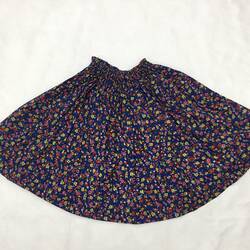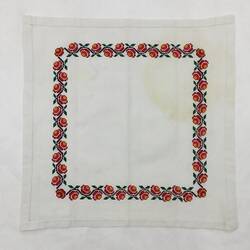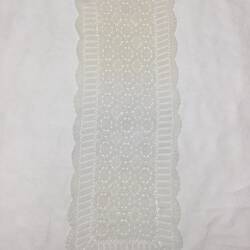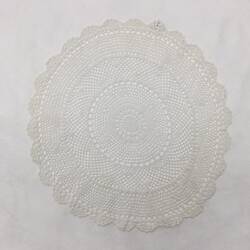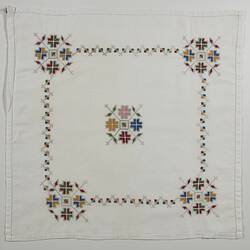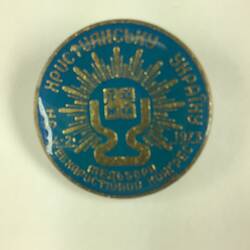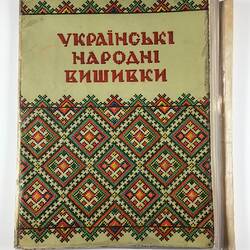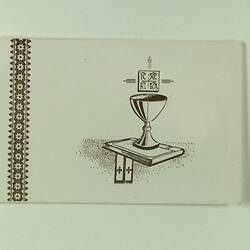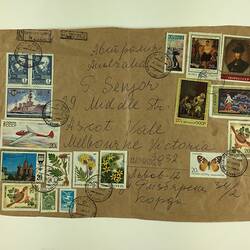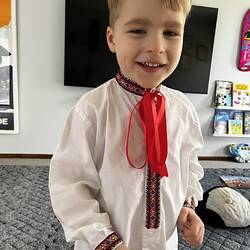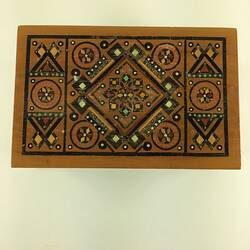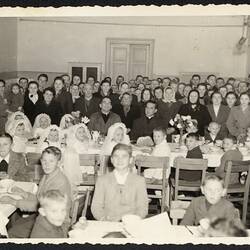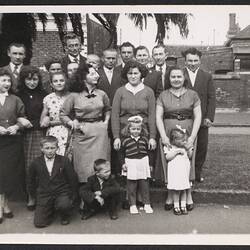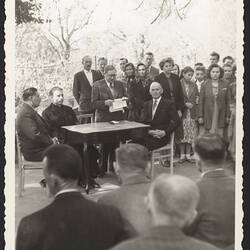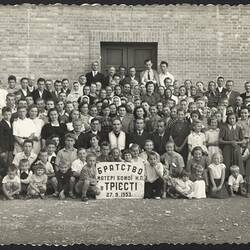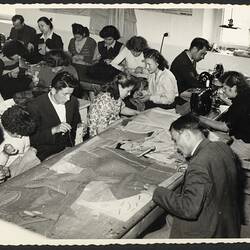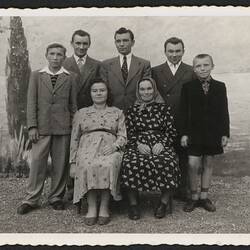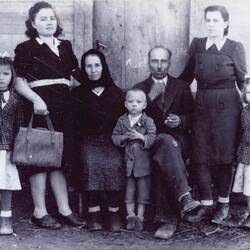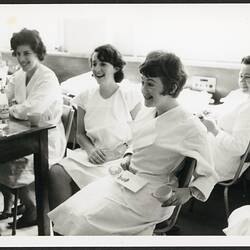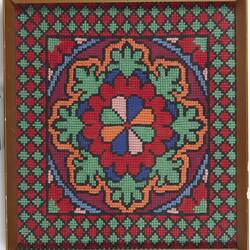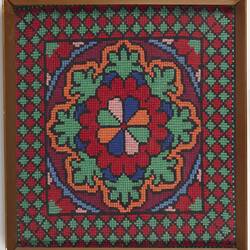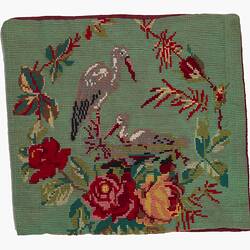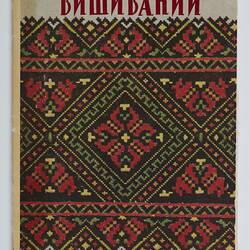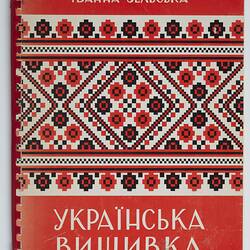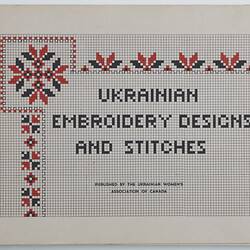Summary
Katerina and Peter Senjov migrated from Bosnia to Australia in 1954.They identified culturally as Ukrainian and continued their Ukrainian cultural and community practices in Victoria.
Early Years:
Katerina Senjov (nee Burlak) was born on 13/2/1928 and died on 5/6/2021. She was born in Gajevi, near Prnjavor, Bosnia in the former Yugoslavia. Her paternal grandparents migrated from Ivano-Frankivsk, Ukraine. Despite growing up in Bosnia, the Senjov and Burlak families always identified themselves as Ukrainians and spoke Ukrainian.
Arriving in Australia:
Katerina married Peter Senjov and they migrated to Australia in 1954, settling in Geelong where Peter built their first house. Katerina worked on farms around Geelong (mainly picking peas), picked up at sunrise by various farmers and dropped off before sunset. Other women travelled further afield such as to Colac to harvest potatoes. Katerina had been a dressmaker before migrating to Australia, which helped her to secure a job at Pelaco sewing men's shirts.
Katerina and Peter became active members of the Ukrainian Catholic Church in Geelong and in 1958 Peter became the second head of the church brotherhood (bratstvo). Bratstvo began to organise events to collect funds to build a church. Katerina supported her husband and actively engaged in various activities. The couple had two children, Natalie and Steven, who were strongly encouraged to learn traditional Ukrainian culture and traditions.
The family joined the rest of the Senjov family in Melbourne and moved to Ascot Vale in 1962 where Peter built their second house. Katerina worked at Queen Victoria Hospital as a cleaner and soon joined the Biochemistry dept as a lab assistant until her retirement.
Community Activities:
The Senjovs continued their active participation in the Ukrainian community (including choirs, dance groups and gatherings wearing traditional regional clothing usually made by Katerina or Natalie). Katerina joined one of the Ukrainian women's choirs after she retired from work, where she wore her embroidered blouses. The dance and choir groups provided the only opportunities to wear traditional clothes. The family frequented a book store in Glenroy owned by Ukrainian post World War II migrant Mr Fokshan who specialised in Ukrainian publications published in Canada.
Katerina, Natalie and other women from the community maintained a variety of cultural traditions such as producing embroidered kneeling cloths for wedding ceremonies; embroidered sash for betrothal visits; embroidered basket cloths for Easter; and embroidered cloths for gifts for unwell community women.
The family attended the Ukrainian Catholic church in North Melbourne and community events at the hall in Essendon; wore regional ensembles to cultural events and at special family celebrations such as Christmas; and produced with other Ukrainian women the vespers for the first ordained Ukrainian Catholic priest in 1967.
Katerina and Natalie also engaged in the traditional Easter practice of hand-painting eggs. They were the recipients of (usually needlework) Ukrainian gift items which demonstrate the active exchange of cultural heritage between Ukrainians in Melbourne and between Ukraine and Australia.
Language:
In terms of languages spoken, the Senjov family spoke Ukrainian at home, with extended family, friends and other Ukrainians in the Ukrainian community. Natalie attended Ukrainian Saturday school and learnt Ukrainian at university level. She partook in Plast (Ukrainian Scouts); Church Youth choir and church liturgy and functions. Later in her life, Natalie taught at the Ukrainian Saturday school and at the Victorian Language School Ukrainian in Year 12 (one of her students obtained the highest VCE LOTE score). She also spoke at an international conference in Ukraine in 2018 about the Ukrainian diaspora in Australia.
More Information
-
Keywords
-
Authors
-
Article types
